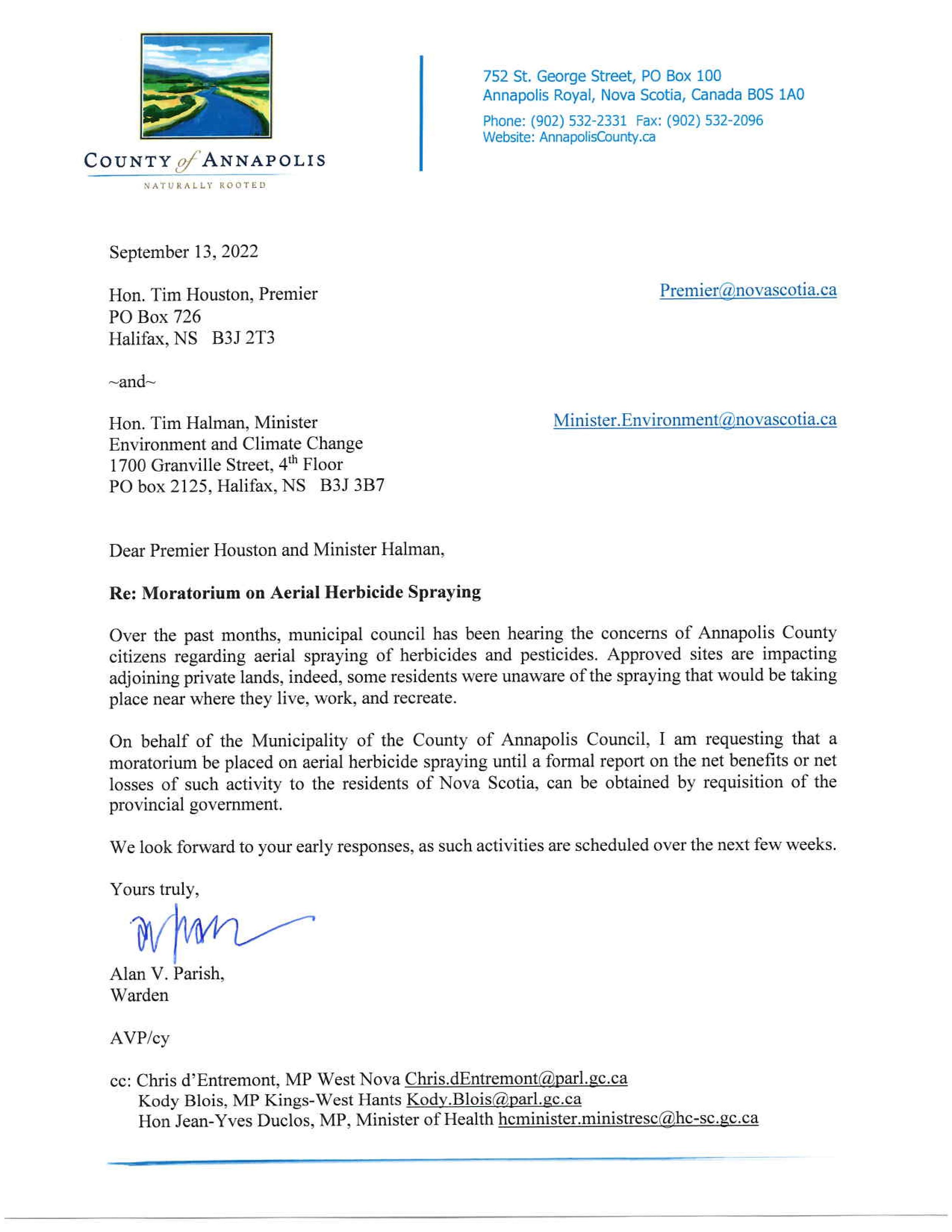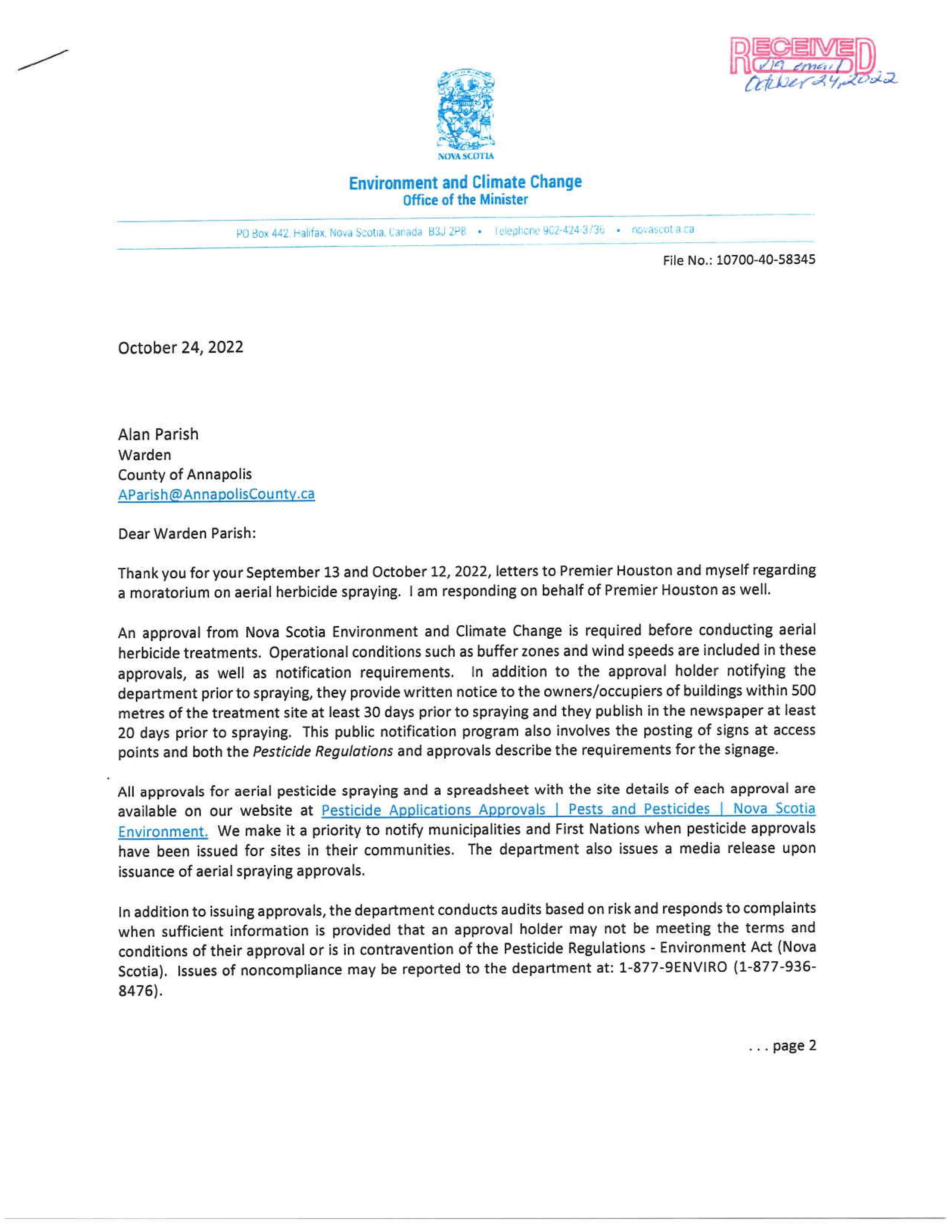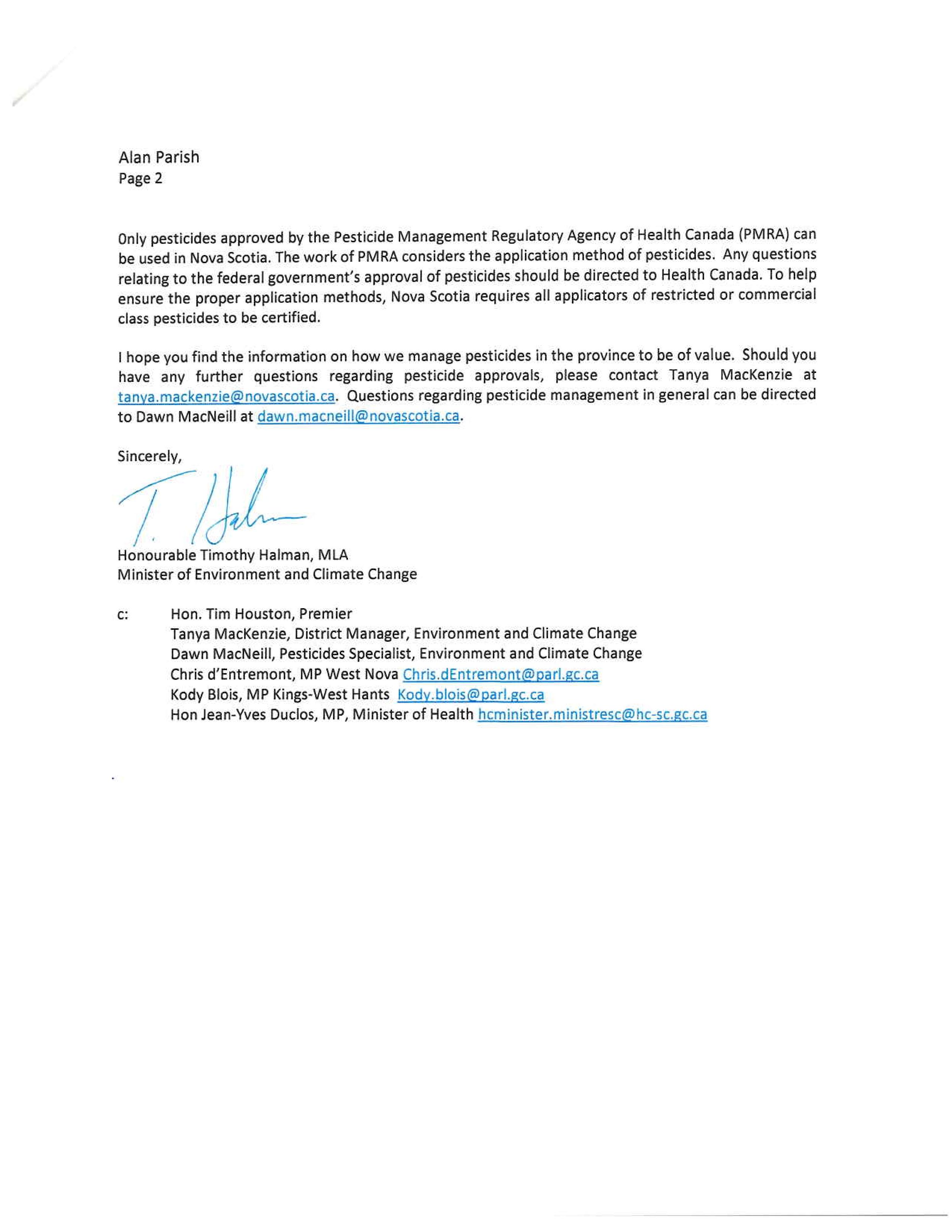Aerial Spraying of Glyphosate Update
County of Annapolis is concerned about the spraying of Glyophsate herbicide within the Municipality. Residents have approached Council with concerns about the health impacts of Glyophsate spraying, and particularly aerial spraying.
Please find below a letter (dated September 13, 2022) from Council to the Nova Scotia Department of Environment and Climate Change and the Nova Scotia Department of Natural Resources and Renewables.
Special Session of Municipal Council (September 13, 2022):
MOTION 220913.02 Aerial Spraying – Letter to Premier and Minister Environment & Climate Change - That Municipal Council write a letter to Premier Tim Houston and Environment and Climate Change Minister Tim Halman requesting that a moratorium be placed on aerial herbicide spraying until a formal report, requisitioned by the provincial government on the net benefits or net losses of such activity to the residents of Nova Scotia, can be obtained; to include copies to the two local MP’s and Health Canada; and that all NS Municipalities be copied and encouraged to send similar letters. Moved: Deputy Warden Gunn, Seconded: Councillor Prout. Motion carried unanimously.
Province's response: 

Please see below the legal opinion provided to Council from the Municipal Solicitors regarding consideration of passing a bylaw to ban the aerial spraying of Glyphosate herbicide and their request of a legal opinion on whether it (Council) has jurisdiction to pass such a bylaw.
Legal Opinion from Municipal Solicitors Concerning Regulation of Herbicides:
Municipal Council (Municipality of the County of Annapolis) requested a legal opinion on whether it has the jurisdiction to pass a bylaw to ban the aerial spraying of Glysophate herbicide in the forestry sector. The Municipal Solicitors were of the opinion that Annapolis did not have the jurisdiction to pass such a bylaw.
The starting point to assessing a question of municipal jurisdiction was to review the Municipal Government Act to determine whether it provided the required authority to the municipality. In this case, the Municipal Government Act does not provide the municipality with the required authority to pass a bylaw that would regulate forestry related applications of Glysophate herbicides. The issue lies with section 172(1)(j), which specifically states that a municipality’s authority is limited to regulating the application and use of pesticides, herbicides and insecticides on properties used for residential purposes. Section 172(1)(j) of the Municipal Government Act further states that any bylaw that a municipality passes with respect to the use of herbicides does not apply to property “used for forestry purposes”. The consequence of this section is that the municipality does not the authority to regulate the use of herbicides in the forestry sector to the municipality.
In reaching their opinion, the Municipal Solicitors considered whether the municipality had the authority to pass bylaws regulating pesticides as part of their general authority to pass bylaws concerning health and safety. The interpretation of municipal statutes is guided by several principles. One of those principles is that general provisions in municipal statutes should not be used to expand the authority granted by more specific provisions. Because section 172(1)(j) of the MGA contains specific limitations on the municipality’s ability to regulate herbicides in the forestry sector, the Municipality’s more general authority to pass bylaws about health and safety cannot be extended to that particular area.
Concerns:
If you have any concerns regarding the impacts of Glyophsate spraying, and particularly aerial spraying, you are encouraged to contact the Nova Scotia Department of Environment and Climate Change and the Nova Scotia Department of Natural Resources and Renewables (contact information shown in letters below).



